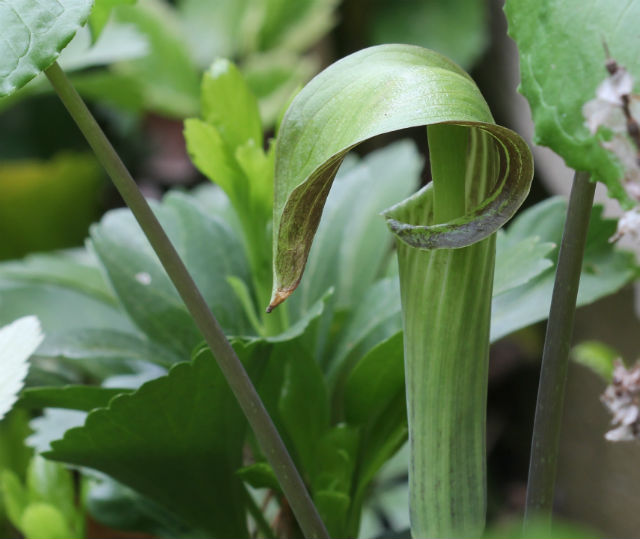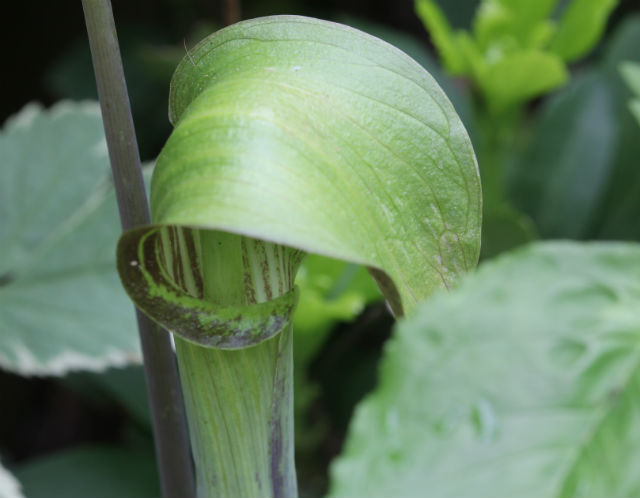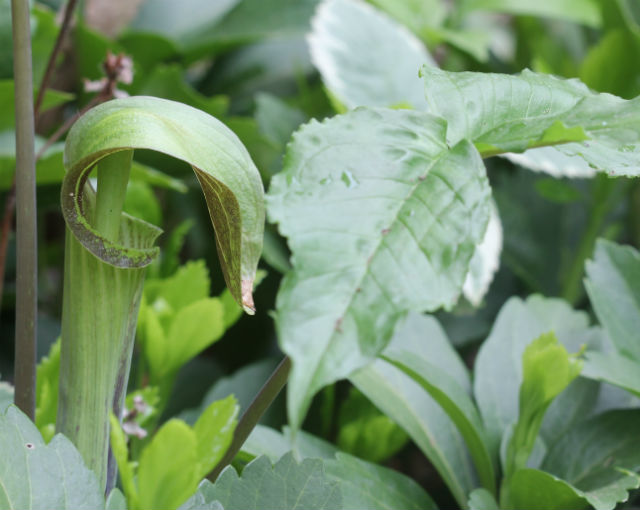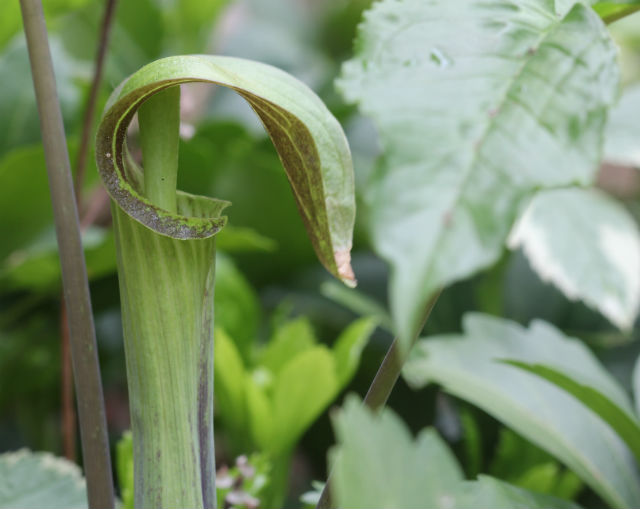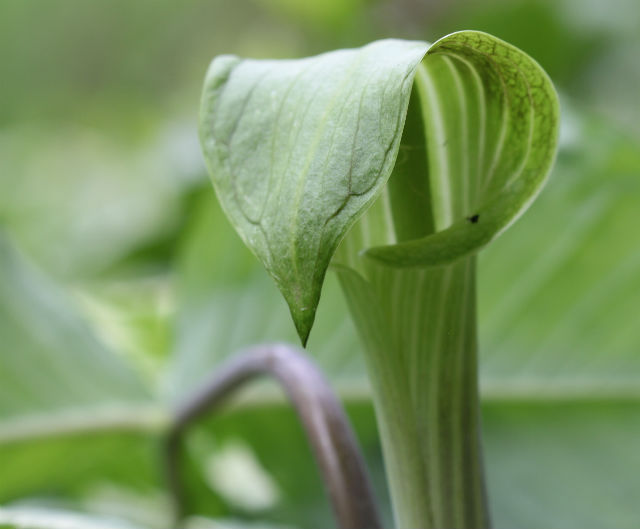A sure sign of Spring is seeing this unique plant with an interesting growth habit. Its flower structure consists of the spadix (Jack) which is an erect spike containing numerous, tiny, green to purple flowers and the sheath-like spathe (pulpit).
Two large green, compound leaves, divided into three leaflets each, emanate upward from a single stalk and provide umbrella-like shade to the flower. The fleshy stalk and leaves lend an almost tropical aura to the plant (though it can be found through the United States as well as parts of Canada).
As protection, this plant contains a high concentration of crystals of calcium oxalate which is a salt of oxalic acid (COOH), a weak acid that is an ingredient in some bleaches and anti-rust metal cleaners. The chemical is infused throughout the plant, protecting it from ingestion by insects and mammals.
In Autumn, Jack-in-the-Pulpit’s mace-like cluster of red berries at the top of an otherwise bare stem has inspired a plethora of folk names.
Jack-in-the-pulpit is a species requiring shade and is found in rich, moist, deciduous woods and floodplains. It is a long-lived perennial and can live to 25 or more years of age.

